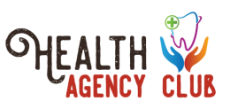Regular health screenings are crucial for detecting potential health issues early, allowing for timely intervention and improved outcomes. However, with a plethora of health screening packages available, choosing the right one can be overwhelming.
In this article, we will explore the importance of health screening, considerations for different age groups and lifestyles, and how to select the most suitable health screening package for your individual needs.
The Significance of Health Screening
Health screenings are proactive measures designed to identify potential health risks or conditions before symptoms manifest. Regular screenings empower individuals to take charge of their health, facilitating early detection and intervention.
This preventive approach is particularly valuable, as it can contribute to better health outcomes and reduce the burden of healthcare costs associated with treating advanced illnesses.
Considerations for Different Age Groups
Young Adults (18-30 years)
For young adults, focus on establishing a baseline for overall health. Basic health screening packages that include blood pressure, cholesterol, blood sugar, and body mass index (BMI) measurements are essential.
Additionally, screenings for sexually transmitted infections (STIs) and certain cancers, such as skin and testicular cancer, may be recommended based on lifestyle factors.
Middle-Aged Adults (30-50 years)
As individuals enter middle age, health screenings should expand to include more comprehensive assessments. Lipid profiles, liver function tests, and screenings for diabetes become increasingly important.
Regular cancer screenings, such as mammograms for women and colonoscopies for both genders, should also be considered. Bone density scans may be recommended for women approaching menopause.
Seniors (50 years and above)
Seniors should prioritize screenings that address age-related health concerns. Bone density scans, vision and hearing tests, and screenings for conditions like osteoarthritis become crucial. Regular colonoscopies, mammograms, and prostate cancer screenings continue to be essential.
Cardiovascular screenings, including stress tests and echocardiograms, can provide insights into heart health.
Considerations Based on Lifestyle
Sedentary Lifestyle
Individuals with sedentary lifestyles may face increased risks of cardiovascular issues and metabolic conditions. Comprehensive health screening packages that include lipid profiles, blood sugar tests, and cardiovascular assessments are crucial. Regular physical activity, even in small increments, is encouraged to mitigate associated health risks.
Stressful Work Environment
High-stress environments can impact both mental and physical health. Health screening packages for individuals in high-stress professions should include assessments for hypertension, mental health, and stress-related conditions. Regular check-ups and counseling services may be beneficial for managing stress and preventing associated health issues.
Unhealthy Dietary Habits
Poor dietary habits contribute to various health issues, including obesity, diabetes, and cardiovascular problems. Health screening packages for individuals with unhealthy dietary habits should prioritize assessments for cholesterol levels, blood pressure, and blood sugar. Nutritional counseling may be recommended to promote healthier eating habits.
How to Choose the Right Health Screening Package
Assess Your Health Goals
Consider your health goals and concerns when selecting a health screening package. Whether you are focused on cardiovascular health, cancer prevention, or overall wellness, tailor your choice to align with your specific health objectives.
Consider Family History
A family history of certain medical conditions can influence your risk factors. If there are hereditary conditions prevalent in your family, choose a health screening package that includes relevant assessments to detect potential genetic predispositions.
Evaluate Lifestyle Factors
Lifestyle factors, such as diet, exercise, and stress levels, play a significant role in health. Choose a health screening package that aligns with your lifestyle and addresses specific risk factors associated with your daily habits.
Consult with Healthcare Professionals
Seek guidance from healthcare professionals when choosing a health screening package. Discuss your medical history, concerns, and lifestyle with your doctor, who can provide personalized recommendations based on your unique health profile.
Review Package Components
Thoroughly review the components of each health screening package to ensure it covers the necessary assessments for your age group and lifestyle. Look for packages that include a combination of general health indicators and targeted screenings based on individual risk factors.
Consider Frequency of Screening
The frequency of health screenings may vary based on age, lifestyle, and health history. Choose a package that aligns with recommended screening intervals and allows for regular monitoring of your health.
Conclusion
Choosing the right health screening package is a proactive step toward safeguarding your well-being and maintaining optimal health. Tailor your selection based on your age, lifestyle, and individual health goals.
Regular health screenings, complemented by a healthy lifestyle, empower you to take control of your health and detect potential issues early, ensuring a path to a longer, healthier life. Regular screenings, complemented by a healthy lifestyle, empower individuals to take control of their health and detect potential issues early, ensuring a path to a longer, healthier life.




